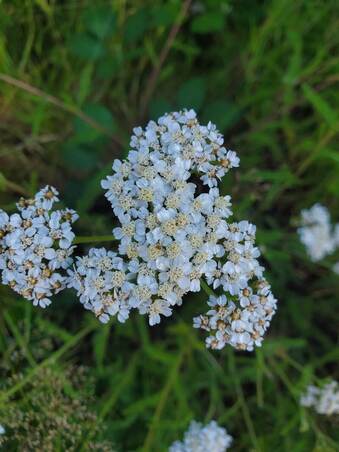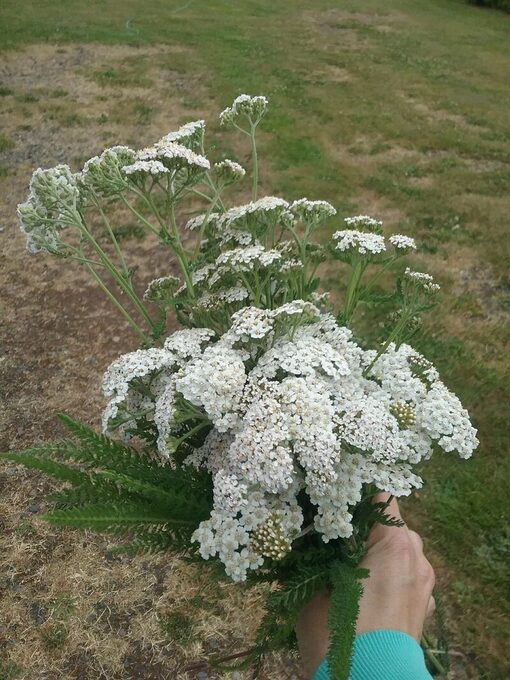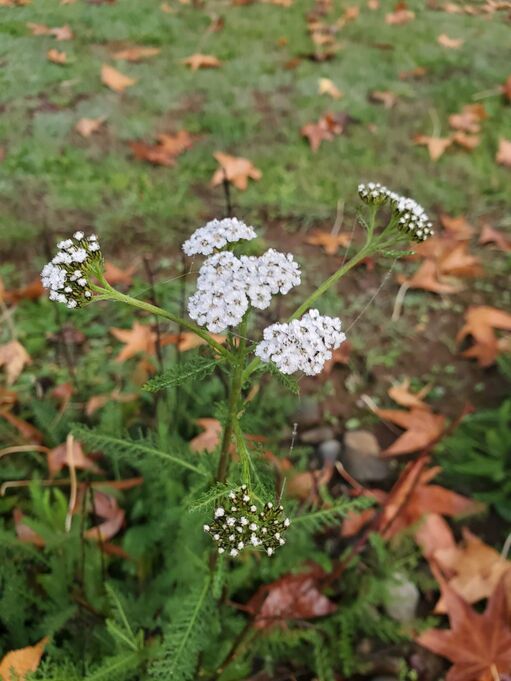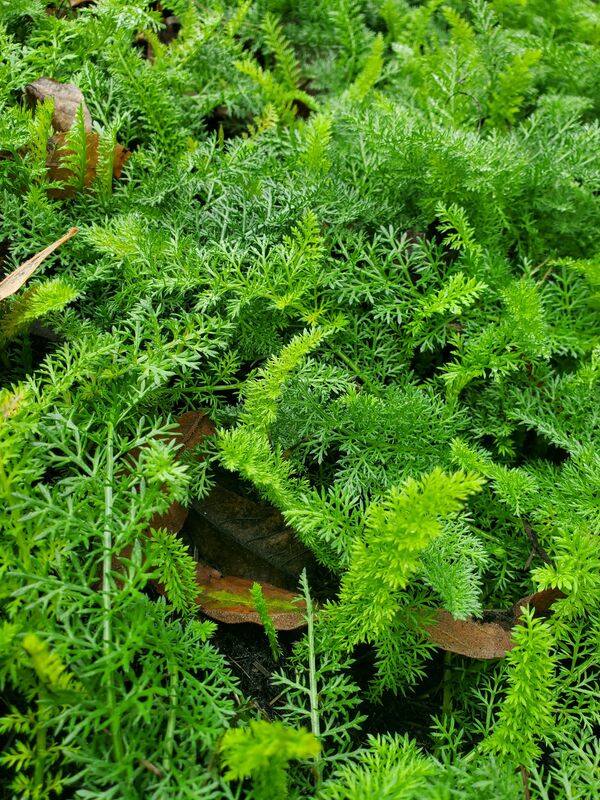The International Herb Society has chosen Yarrow as the herb of the year for 2024. Yarrow, Achillea millefolium, is a well-known perennial found throughout the world. Its name comes from the famed warrior Achilles whom it is said used it to staunch the wounds of his soldiers. Soldiers in many wars used it for the same purpose and it is found in our kitchen to stop all those little cuts and scrapes that happen there.
It is typically:
- Drought tolerant – isn’t too particular about soil or light conditions
- Deer resistant
- Delicate ferny foliage and clusters of flowers are attractive to butterflies and other beneficial pollinators
- Blooms throughout the summer if deadheaded regularly
- Not too particular about the soil or light
- Start from seeds but will spread from underground runners
- Doesn’t take up a lot of space (unless you let it!)
Yarrow has appeared in our blog musings several times and we believe it is well deserved to be the Herb of The Year.
Yarrow – a lovely perennial that is heavily interplanted among our roses, we find it provides an excellent attractant for ladybeetles/bugs. We have one rose plant that does not have yarrow planted beneath it, and it had terrible aphids all over it. While the other roses, which are surrounded on both sides by yarrow, had significantly less. While harvesting, we often have to gently shake the ladybugs off the yarrow flowers. The leafy, ferny foliage along with its tightly packed flowers make great hiding places for many other insects. You can also plant it in a mixed herb hedge along the edge of your garden – it is lovely interplanted with other perennial herbs such as lavender, sage, beebalm, feverfew and thyme.
From Herbs for Summer Skin:
Yarrow - Achillea millefolium, the perennial plant is also thought of as a weed. It has fern-like feathery leaves and a flower stalk that grows nearly four times the height of the leaves. The native plant has white flowers but there are other varieties with yellow or even pink flowers. Yarrow likes full sun and is considered drought tolerant and isn’t picky about the type of soil except if it is too wet. It is fairly low growing and will spread easily (like it has into our lawn!).
Since the times of Ancient Greece, yarrow has been used in poultices and ointments to treat wounds. It was used by soldiers during both world wars to help staunch bleeding. It has antimicrobial and pain relieving traits and is helpful for soothing skin irritations. It is also deeply nourishing and restorative.
Use what you have: you might be surprised to find that some of the herbs you have on hand are good for what might ail you – whether that be this particular virus or something else that crops up while the medical system is overwhelmed. Here are a couple of herbs we have on hand and are ready to use should we need to:
- Got yarrow? Make a tea for when you have a fever – it is both cooling and warming – helping to get the blood flowing and inducing sweating. Many recommendations are coming out for this current virus to avoid NSAIDs like ibuprofen, a frequent go to medicine for fever. Yarrow is easy to grow and prolific – it is a common “weed” in the lawn at the farm – ha! While we haven’t used yarrow for fevers because we’ve been lucky to avoid high fevers, and we typically let most fevers run their course since they are beneficial to the healing process for the body – we definitely have some on hand to make tea for this virus should it strike. Sadly, this plant can be problematic for people who have allergies to plants in the Aster family (think daises, sunflowers, asters, and such).
From Unique Uses for Familiar Herbs -
Even the family egg layers can benefit from herbs. For those of you who have chickens, herbs in nest boxes can be calming and mite deterrents. Lavender, calendula flowers and yarrow make good additions to nests. Mix the lavender buds, calendula flowers and yarrow leaves and flowers in with the nesting material. All help to deter mites, lice and prevent itching. Lavender especially has a calming effect.
How about you? Do you have yarrow growing in your gardens? If not - we recommend giving a good consideration as an herb to add this year!
If you are in need of seeds, we have them available right now from our very own naturally grown yarrow plants. And we'll have plants available this spring.




